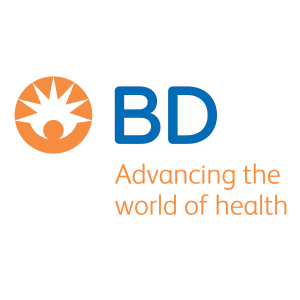
Silver lining: opportunities can arise from the corona crisis
May 7, 2020
Author: Anja Petschauer
Co-authors: Anna Derschang, Melitta Gilllespie
gwSaar has been a member of BioUtah and a trusted partner of the State of Utah for many years. As a German investment promotion agency, we can observe the economic trends developing in our crisis-stricken global economy first-hand. We are honored that BioUtah has asked us to provide its members with some of our insights.
It is not within the German nature to make promises that cannot be kept and, unfortunately, we also do not have a crystal ball to predict the future. Nevertheless, we would like to point out some opportunities that may arise out of this global pandemic.
The current events may be the most challenging that the global market has ever faced. And we are all curious to see if our well-established economic structure will be forever changed due to a health crisis.
We would like to take a look at four suppositions in particular that could provide an opportunity for companies willing to realign their strategies.
- The regional availability of vital goods
Europe is facing an unseen shortage of vital goods, such as surgical masks, personal protective equipment, certain pharmaceutical products and medical devices. Some of these items are not even available to the public at all.
During these times, companies that have established their production and storage exclusively overseas, have struggled with their business model. There are indications that lean logistics without storage might also be a thing of the past.
The EU member states will probably assure that the production and storage of vital goods will be relocated to the continent in the future. The German Federal Minister of the Interior, Building and Community, Horst Seehofer, has already called for a Medical Care Security Act in order to be better equipped.
Joschka Fischer, former Secretary of State and former Deputy Chancellor of Germany, also recognizes the necessity for governmental stockholding. Especially, as the recent crisis may be a foretaste of crisis to come, e.g., one caused by climate change, he points out. A threat that weighs heavily on the European agenda and may be included in corresponding civil defense scenarios in the future.
Non-European companies that produce crucial products and distribute them internationally may therefore want to consider relocating to the continent. This may secure long-term business contracts within the EU as well as an opportunity to surpass other competitors who are not willing to expand or adapt.
- Decentralized supply chains
Production lines are shut down at the moment. Even Germany’s economic motor, the automotive industry, is on hold. One could argue that even without the major Corona outbreak in Europe, production lines in many industries would likely have been shut down, as essential parts would not have been available regardless. Namely the parts that were not produced or shipped during the shutdown of Chinese factories at the beginning of the year. After all, the frequency of sea and air freight shipments was dramatically reduced for several weeks and is, even today, not back to its normal level.
OEMs in all sectors are well-advised to restructure their supply chains in the future. Today, they already bind suppliers to guarantee just-in-time and just-in-sequence delivery by contract. In the future, they may also bind them to establish production lines and storage units close by.
For companies that are already operating in the EU, this is a perfect opportunity to take the next step and set up production units in Europe. The fact that they could guarantee both local support, and rock-solid regional supply chains, would give them a competitive edge.
- A market that is ready for investments
The current crisis may create opportunities for investors in Germany. The reasons are manifold. Some companies may want to attract investments to secure their liquidity. Others might want to establish their R&D sector more strategically or may decide to decentralize their production units. Unfortunately, there are also companies that will not have the available assets to survive the crisis, despite the enormous monetary aid that governments are providing to stabilize the economy. This may lead to game-changing M&A opportunities.
These are great prospects for growth-oriented companies looking for future partners, as well as for investors that want to make strategic investments, even beyond their core competence.
- Benefits and Opportunities
Last but not least, there are industries that have demonstrated their strengths in this crisis. Some companies obviously benefit from the situation, like the producers of vaccines, personal protective equipment or other medical products related to the fight against Covid-19. Next to others, e-commerce and IT services as well as video conferencing platforms have also managed to come out ahead.
The pandemic has changed our daily routines. It has been long predicted that digitalization would change the way we work and study. The recently implemented social distancing rules have jump started this trend. Most likely, it will not be completely reversed, so this poses a chance for entirely new business fields.
Companies that have benefitted from the crisis and are considering an expansion are well-advised to follow through with their plans. The predicted decentralization movement and the above-mentioned call to establish regional supply chains will work in their favor.
It will be interesting to see whether tele medicine will finally have its breakthrough as well. Systems that monitor patients remotely could protect hospital staff and reduce their workload.
It is also interesting to see that some of the most-recent innovations were designed by interdisciplinary teams. The use of 3D-printed valves to transform oxygen masks, and even snorkeling masks, into respiratory equipment, serves as a perfect example of these advancements. Savvy companies that usually make liquor have switched to the production of hand sanitizer and some apparel companies now produce surgical masks. This solution-oriented approach may be a good model for other challenges that lie ahead in the future. From here on out, a certain willingness to adapt business models and to think outside the box might be a decisive factor in a company’s success.
Author
Anja Petschauer, Director Marketing
Anja Petschauer, a biologist by training, has over 20 years experience in marketing and communication. She has worked for start-ups, as well as established players.
Since 2009, she has been working as Marketing Director gwSaar Saarland Economic Promotion Corporation where she is responsible for the company’s international activities. Due to her profound knowledge on public affairs, location marketing, and cutting-edge research and technology, she has also been a consultant and expert to the EU commission as well as to the OECD.
Anja Petschauer is married and has a son.
Co-Author
Melitta Gillespie, Business Intelligence
Melitta Gillespie is part of the business intelligence team at gwSaar Saarland Economic Promotion Corporation. As a translator specialized in economics, she has years of experience working with companies from all over the globe. Her approach to analytics takes both cultural and entrepreneurial aspects into account. This has proven invaluable for predictive analytics, the identification of new markets and business strategy.
Melitta has a special relationship with the US. With her American husband, a former member of the US Armed Forces, she has two sons.
Anna Derschang, Project Manager
Anna Derschang graduated in Economics with a focus on international business and has been with gwSaar Saarland Economic Promotion Corporation for more than ten years. As project manager, she leads gwSaar’s Berlin office and has helped numerous companies to succesfully establish their operations in Europe.
When the Utah Governor’s Office of Economic Development had commissioned gwSaar to be their trade representative in Europe, Anna was in charge of the project. In her function, she has advised many Utah companies and has helped European companies to a successful start in Utah.
Since her first time visiting, Anna has been an admirer of the State of Utah, its people and its breathtaking landscape. She is the mother of two sons and lives in Berlin with her family.
Recent News
- CivicaScript® launches low-cost treatment to improve walking for people with multiple sclerosis
- HUNTSMAN MENTAL HEALTH INSTITUTE CELEBRATES 10 YEARS OF BEHAVIORAL HEALTH INTEGRATION PROGRAM
- SINTX Technologies Issues Business Update Following Strategic Realignment, Leadership Expansion, and SiNAPTIC Acquisition
- First Patient Enrolled in Merit Medical’s WRAPSODY (WRAP) North America Registry
- Shedding Light On Cardiac Repair: How Red-Light Preconditioning Improves Cell Therapy
- Owlet® Achieves TGA Certification for Dream Sock™, Paving the Way for Launch in Australia and New Zealand











